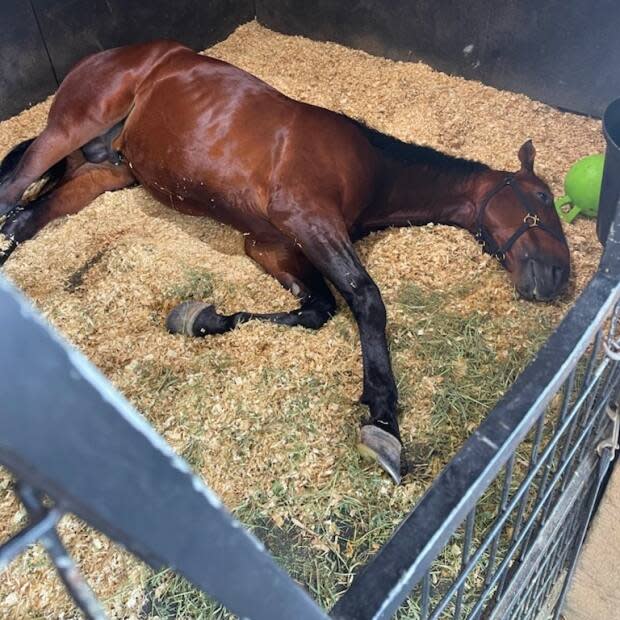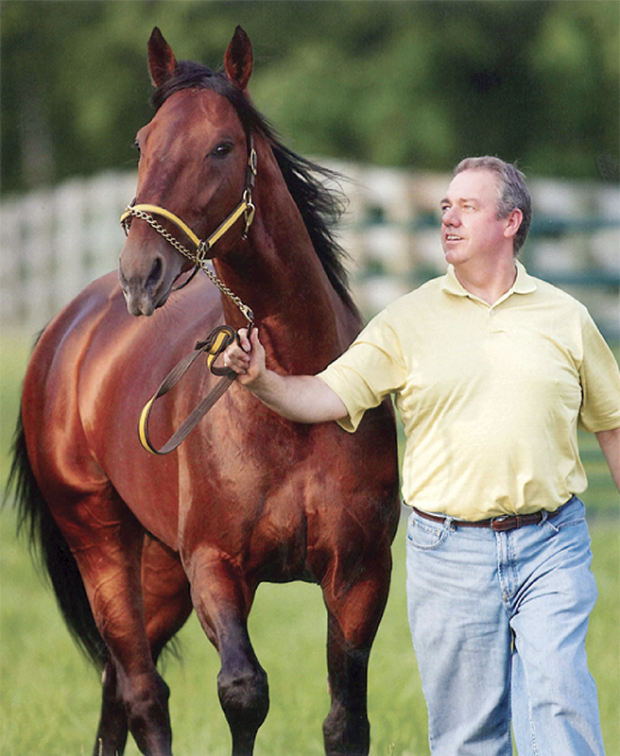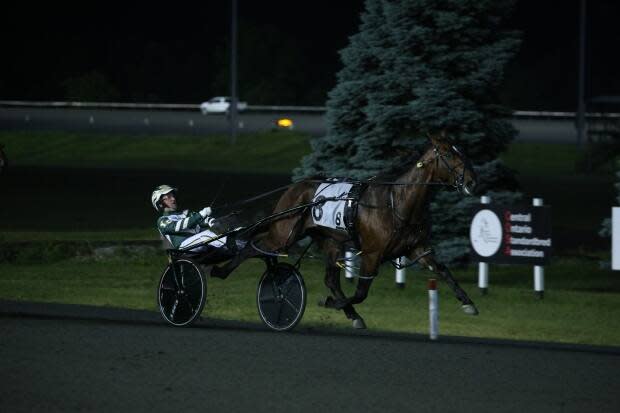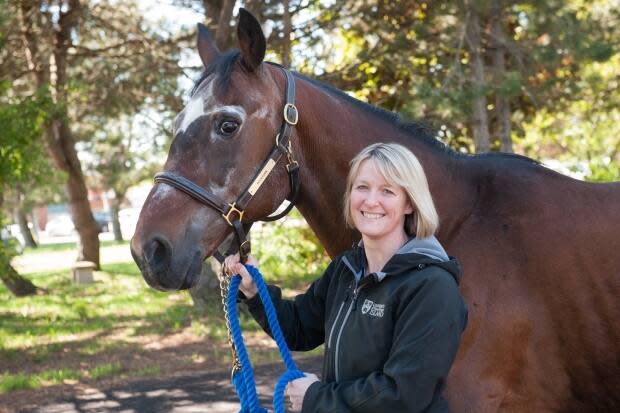Talented Nova Scotia offspring of racehorse Somebeachsomewhere recovering from surgery

A Nova Scotia colt sired by the legendary racehorse Somebeachsomewhere has more than $1 million in earnings this year, but is temporarily sidelined due to surgery.
Beach Glass has raced in 11 events, winning seven, accumulating earnings of $1,009,166.
But at his last race on Oct. 1 at the Red Mile in Lexington, Ky., owner Brent MacGrath noticed Beach Glass wasn't quite himself. He seemed tired and lost to horses he'd never lost to before.
Beach Glass was diagnosed with an entrapped epiglottis, which occurs when a piece of tissue in the horse's throat becomes inflamed and gets stuck over the top of the epiglottis. This narrows the horse's airway.
"He was quite worked up that day and it's understandable when you can't breathe and get your air that you would be a bit fired up and scared, basically," said MacGrath.

Beach Glass had surgery and the aim is for him to be back on the track for a qualifying race on Nov. 16 at Dover Downs in Delaware.
Beach Glass is one of the 1,073 horses Somebeachsomewhere sired after his hall-of-fame harness racing career wrapped up in 2008. The champion standardbred pacer won 20 of 21 starts and earned more than $3.2 million in earnings.
While around 1,000 horses sired by Somebeachsomewhere have raced, expectations were especially lofty for Beach Glass.
MacGrath, from Truro, N.S., was Somebeachsomewhere's trainer and part owner. The horse was famously purchased for $40,000 — top horses often sell for more than $100,000 — with the cost being split six ways between his Maritime owners.
Somebeachsomewhere's unlikely origins only added to the horse's charm and the public attention he captured.
The question was would magic strike twice for MacGrath?

"For us to even have a horse to be in those races with the small stable we have is unbelievable," said MacGrath. "And then to have the last son of Somebeachsomewhere out of a mare that we own is incredible."
Somebeach died in 2018, but MacGrath still had a vial of the stallion's frozen semen. Beach Glass was born in 2019.
Of the four losses Beach Glass had at his 11 races this year, three were second-place finishes and one was a fourth-place finish at the Red Mile, after which the entrapped epiglottis was diagnosed.
Dr. Aimie Doyle is a surgeon and professor with the Atlantic Veterinary College in Charlottetown. She has not treated Beach Glass, but was able to provide general information on an entrapped epiglottis.
She said the epiglottis is found anywhere from 30 to 45 centimetres from the opening of a horse's mouth. Spotting an entrapped epiglottis must be done using an endoscope, a thin tube inserted into the body to observe internal tissue.
Surgery can be done in two ways, said Doyle.
"A lot of times we can do that in a standing horse with an endoscopic laser," she said. "We can just make a little cut in the tissue that's sitting up over top of the larynx and then it slides back to where it's supposed to go.

"Other times, if we don't have a laser available, I have a small enough hand, I can actually do this through the mouth of the horse ... with a small sort of hook blade."
Doyle said it's not a common condition, and is caused by something benign, like a respiratory virus.
She said horses can usually resume training two to three weeks after surgery.
Following in his father's footsteps
MacGrath said Beach Glass has resumed training.
Looking ahead to next year, MacGrath said the plan is for Beach Glass to race as a four-year-old and then begin a career at a stud farm.
It's similar to the formula established by Somebeachsomewhere, who only raced for two years.

His post-racing life was spent siring horses at Hanover Shoe Farms in Pennsylvania, beginning in 2009. On Mondays, Wednesday and Fridays, his coveted semen would be collected, which sold for as much as $30,000 a breeding.
Even MacGrath is surprised by how things have turned out for Beach Glass.
"Well, it's a little bit unbelievable," he said. "We thought we had a nice horse, we didn't realize we had this kind of horse."
MORE TOP STORIES


